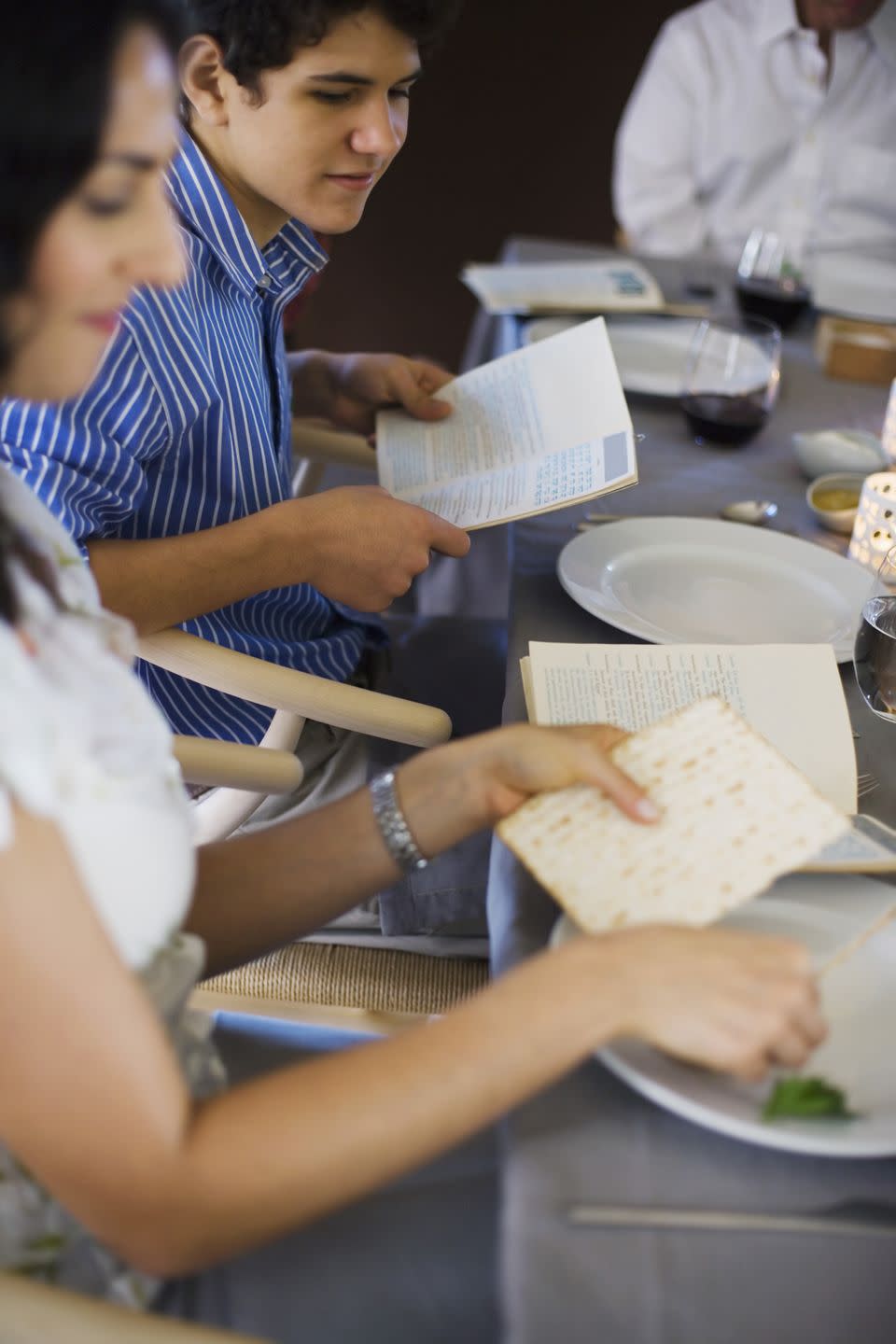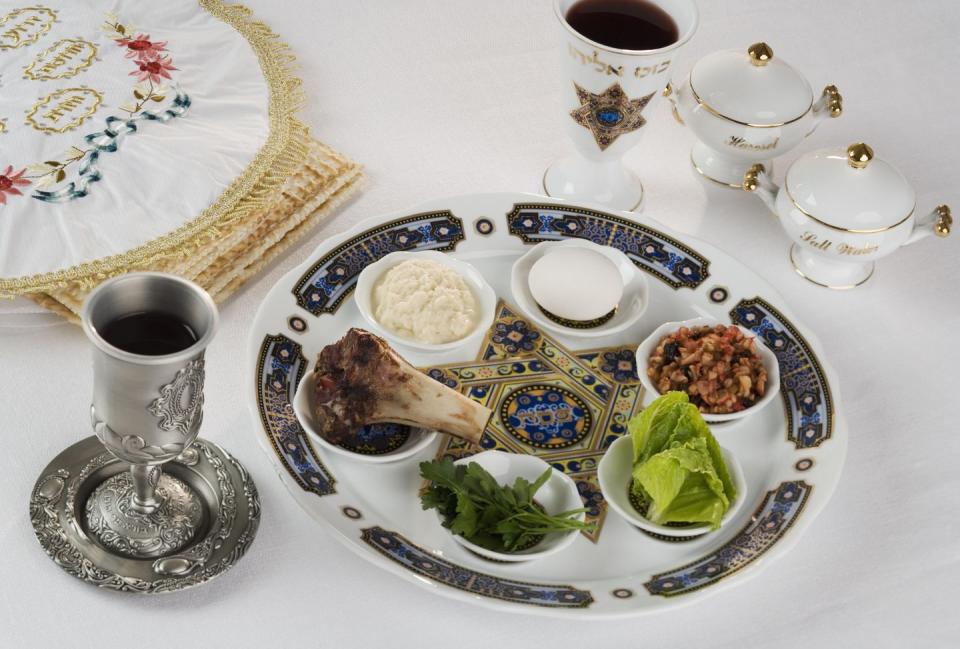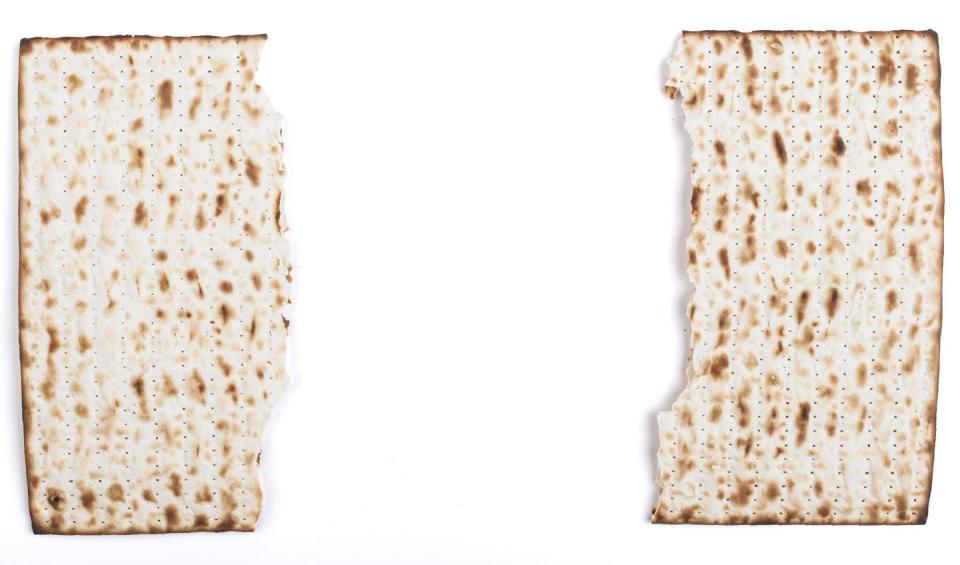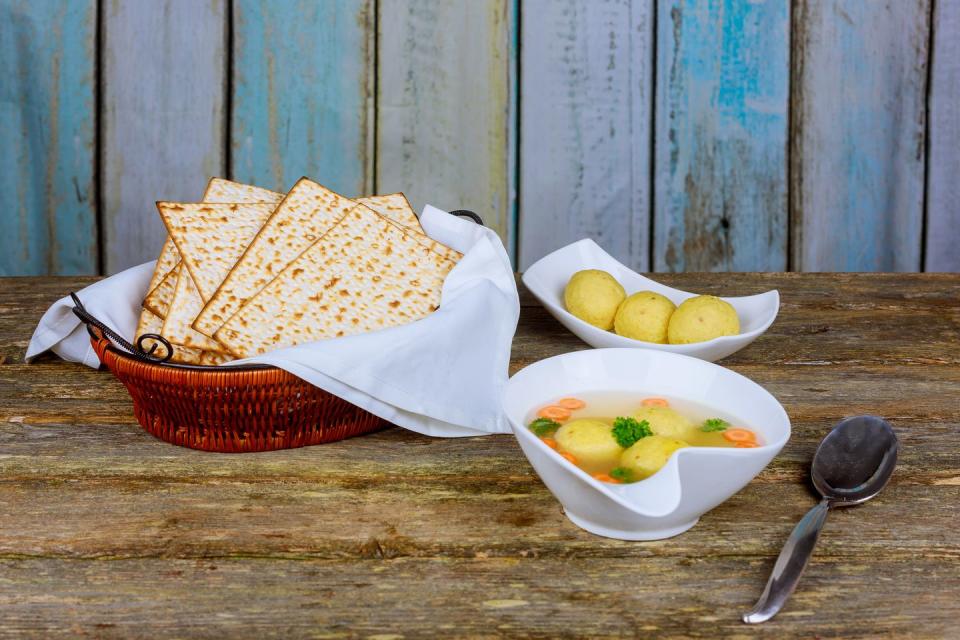7 Passover Traditions and Customs That Make the Holiday Unique
- Oops!Something went wrong.Please try again later.
Each spring, Jews around the world celebrate Passover, a thousand-year-old holiday with a rich history. The festival commemorates the story from the Book of Exodus in the Torah, in which the Jewish people were able to escape the bonds of ancient Egyptian slavery with the help of Moses through God. There are many timeless Passover traditions that are important to recognize when celebrating the holiday. From having a seder to forgoing leavened bread to finding the afikomen, these customs are unique to the holiday and aren't observed during other Jewish holidays.
To make the most of your Passover celebrations this year, be sure to read through the following list of time-honored traditions and see how you can incorporate these various Passover customs in your own holiday celebration. You can also go back and read about the story of Passover to become more acquainted with the holiday before it begins. The telling of the Passover story is highly important to the celebration of the holiday, so it's never a bad time to remind yourself of why the holiday is observed. And when you're ready to begin planning your Passover festivities, don't forget that the meal during the Passover seder is a huge part of the holiday. Consider trying out one of these delicious Passover desserts, which, let's be honest, your family would enjoy any time of year. In the meantime, check out these interesting Passover traditions.

Cleaning the house
Before Passover begins, it is customary to do some spring cleaning. The idea is that you want to go into the holiday with a clean slate, and that you want to make sure you're setting yourself up for a successful Passover. That means making sure there's no leavened bread or grains, known as chametz, in your kitchen, since these items are not kosher for Passover.
Telling the Passover story
The Passover story takes place in the Book of Exodus in the Torah. It occurs when Moses sees the atrocities against the Israelites, who are enslaved in ancient Egypt, and he pleads with the pharaoh to "let my people go." The pharaoh refuses Moses again and again, and each time, God unleashes a different plague on the Egyptians until finally the pharaoh is convinced to let the Israelites leave. An important part of celebrating Passover is reading the Passover story, whether that's directly from the Torah, a version in the Haggadah, or a children's version of the story. It's crucial to understanding why Passover is being celebrated.
Hosting a seder
The seder is one of the most foundational parts of celebrating Passover. Whether you're on your own, with close family, or with a group of family and friends, Jewish people around the world gather on Passover to have a seder. A seder is comprised of a dinner as well as reading through the Haggadah, or Passover prayer book, which includes the story of Passover and various prayers to recite throughout the seder. Some prominent parts of the seder include acknowledging each of the plagues God set on the Egyptians when the pharaoh refused to free the Israelites, and reflecting on what each item on the seder plate symbolizes.

Opening your door for Elijah
Jewish families place an extra glass of wine on their seder table as an offering to the Prophet Elijah, whose spirit visits homes on Passover. At the end of the seder, it is custom to pour wine into Elijah's glass, open the front door so his spirit can visit your home, and recite verses from the Book of Psalms.

Finding the afikomen
For the kids at the seder, finding the afikomen is always the best part of the evening. Near the beginning of the seder, there are three pieces of matzah stacked by the seder plate. The middle piece of matzah is broken, and the smaller piece is returned between the other two slices while the larger piece is wrapped in a cloth and set aside. This larger piece is called the afikomen, and it is meant to be the dessert after the seder. Traditionally, at some point in the evening, one of the adults will leave the table to hide the afikomen in another room, and then the children at the seder will be unleashed and sent in search of the afikomen. The child that finds it may get a small prize in exchange for the afikomen when they return it to the table. Seders can oftentimes last many hours, so searching for the afikomen is a great way to keep children engaged in the seder instead of falling asleep at the table.

Not eating leavened bread
Throughout the eight days of Passover, Jews do not eat any leavened bread products. That means no bread and no pasta. Instead, they eat matzah, a special kind of unleavened cracker that is made kosher specifically for Passover. The reason that nothing leavened is eaten relates back to the Passover story. The story tells us that when the pharaoh finally allowed the Israelites to leave, they had to leave Egypt so quickly that they didn't have time to wait for their bread to rise. They gathered whatever belongings they could as fast as they could, including their unleavened bread, which would end up being more of a cracker. So to commemorate that, and to remember the struggle that the Israelites faced when leaving, modern day Jews don't eat leavened bread during the holiday.
Thinking of those who are still persecuted
The Jewish people have a history of being persecuted, and Passover is a holiday that exemplifies that. That's why an important aspect of Passover is to take stock of the history of persecution and recognize the oppression of people of all faiths and backgrounds around the world today. It is a reminder that, as Martin Luther King Jr. put it: "Injustice anywhere is a threat to justice everywhere." And it is a call to action to hold fast to the Jewish principle of tikkun olam, or repairing the world.
You Might Also Like

